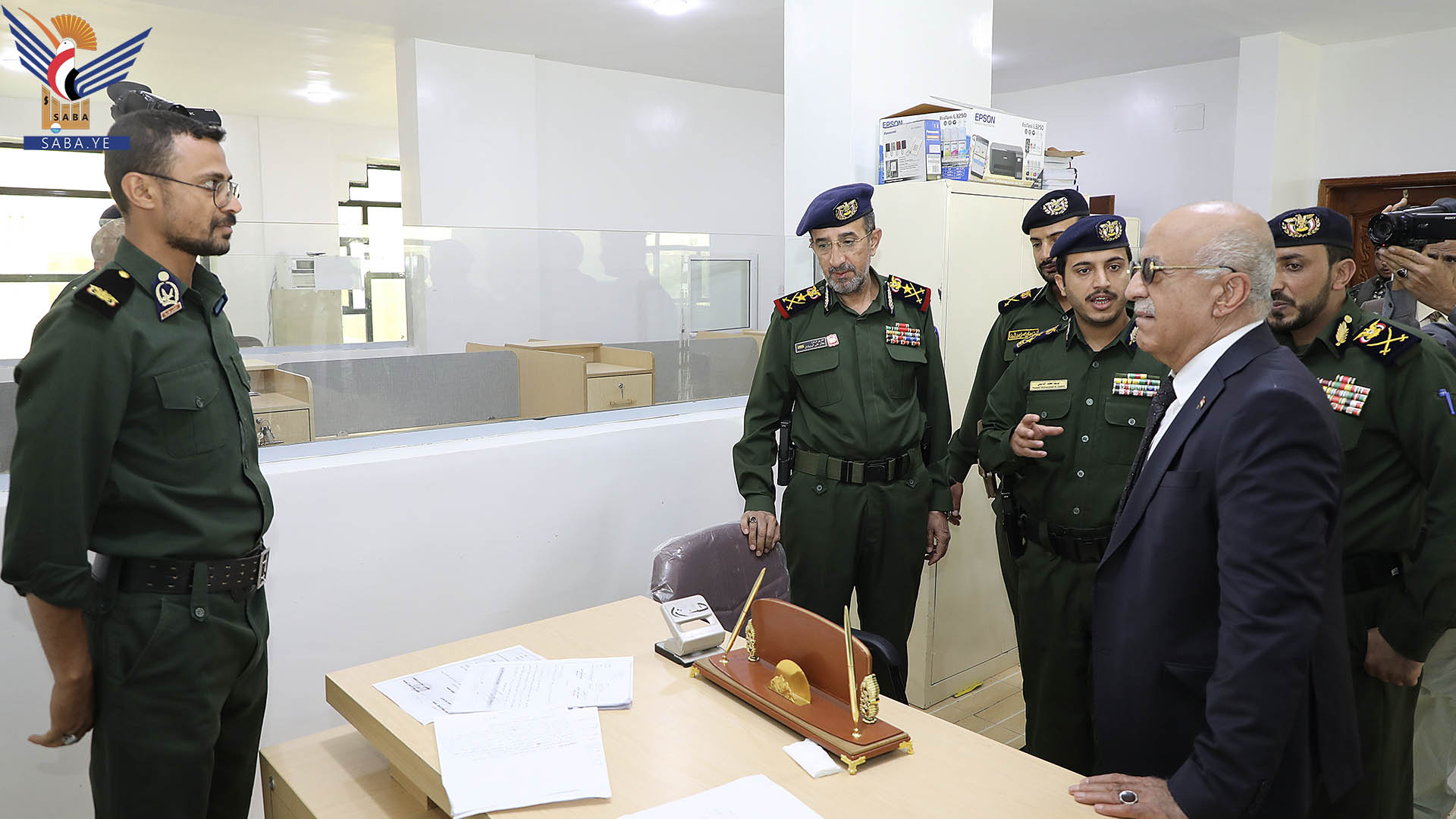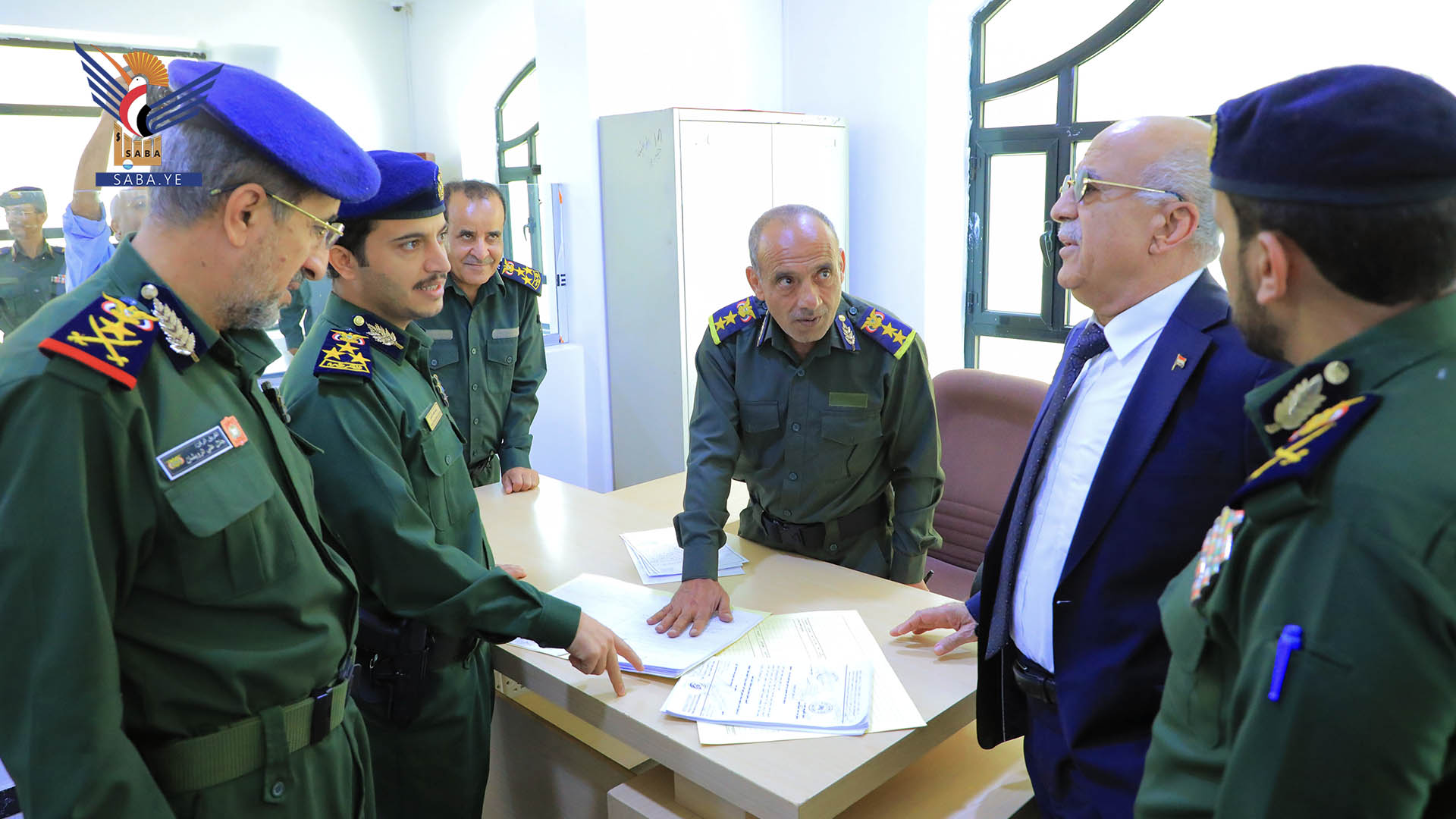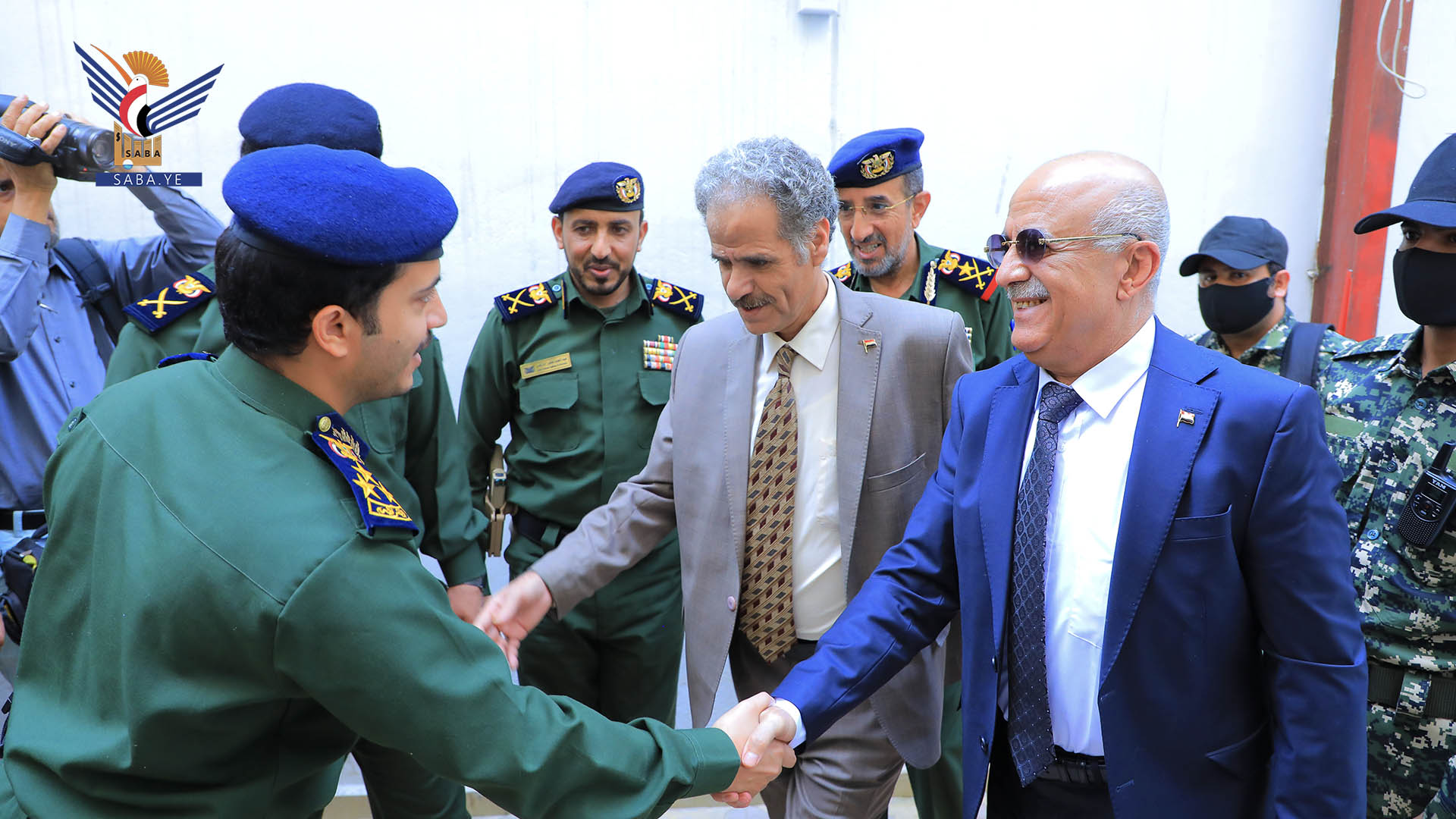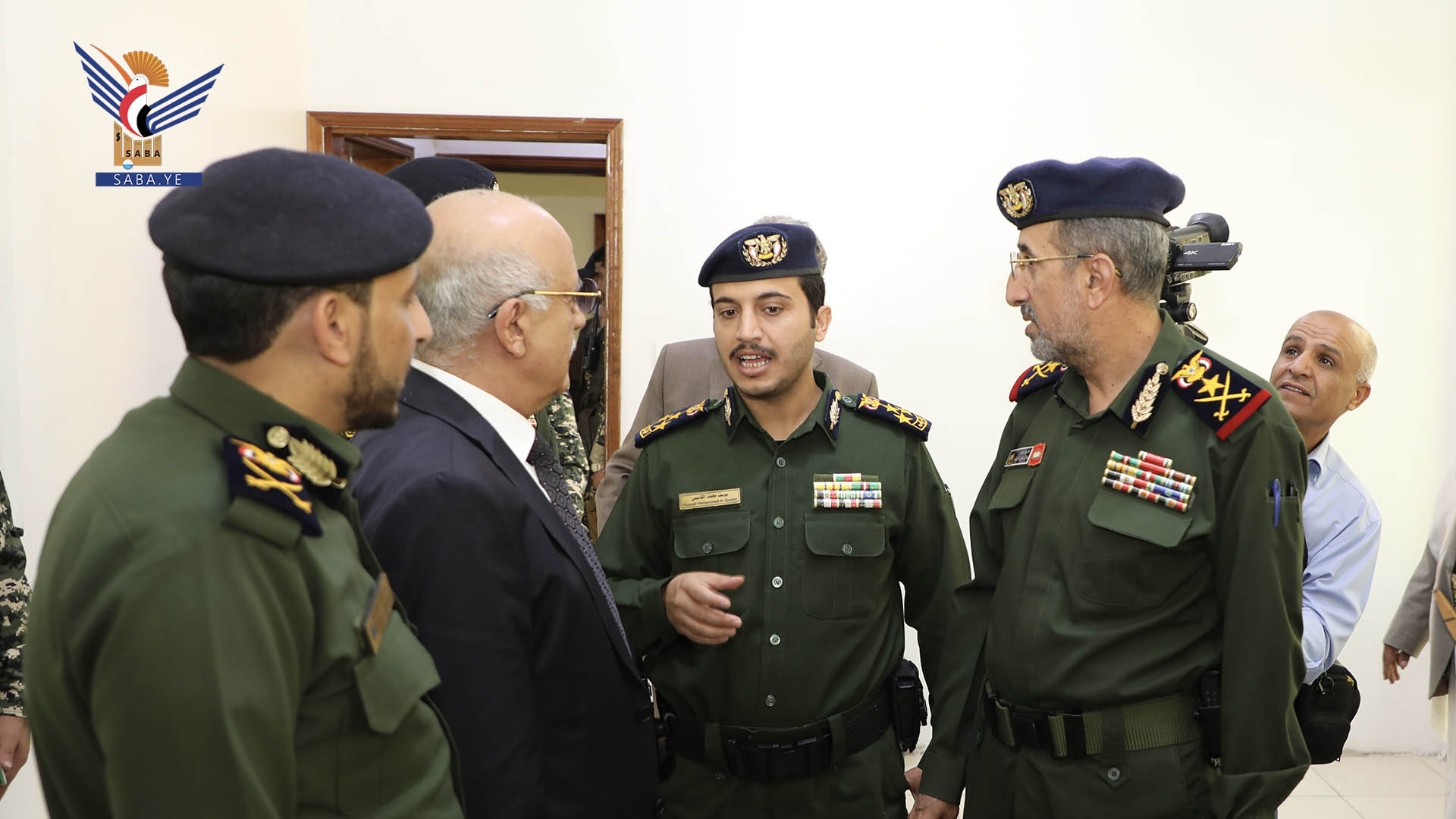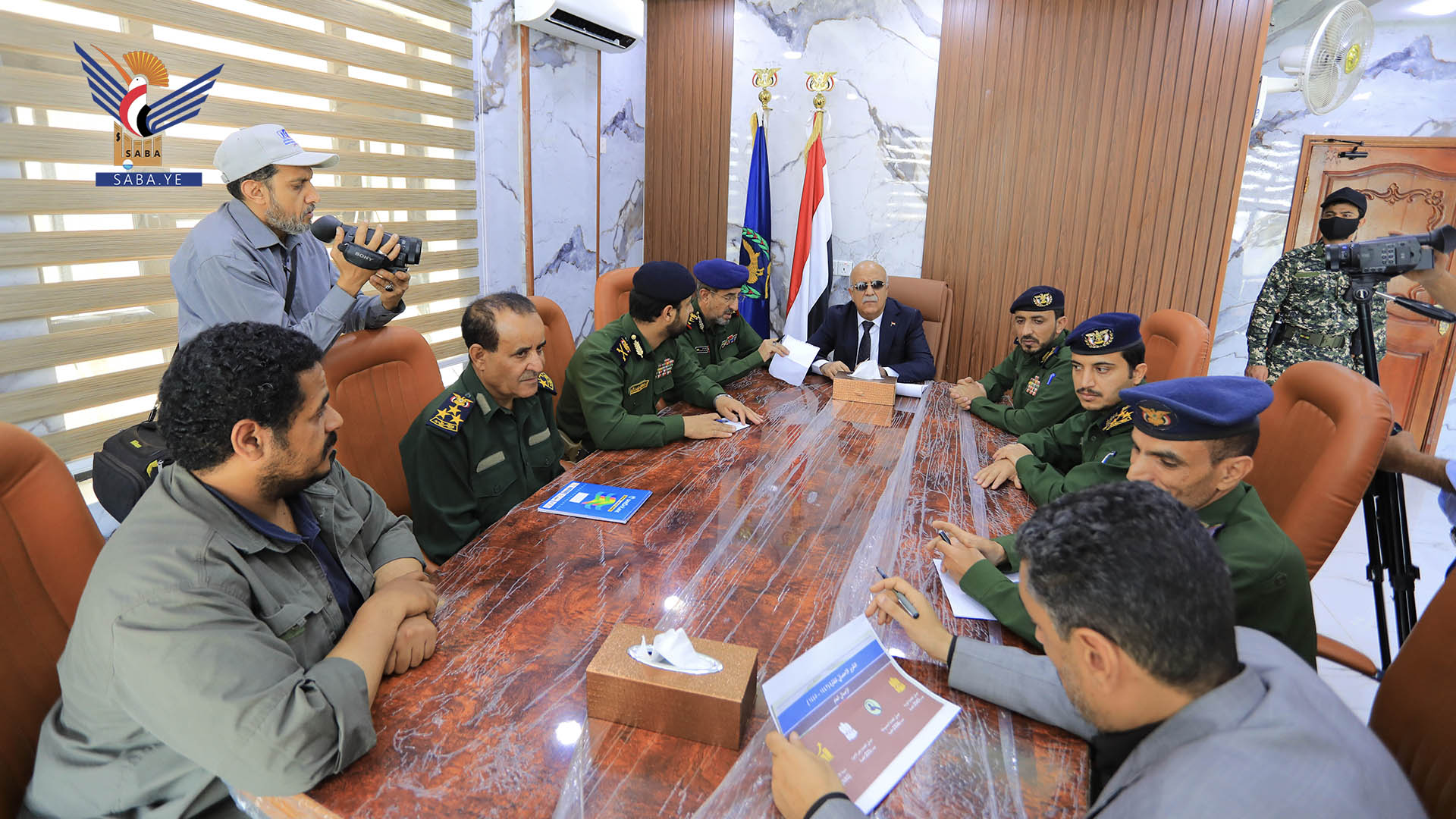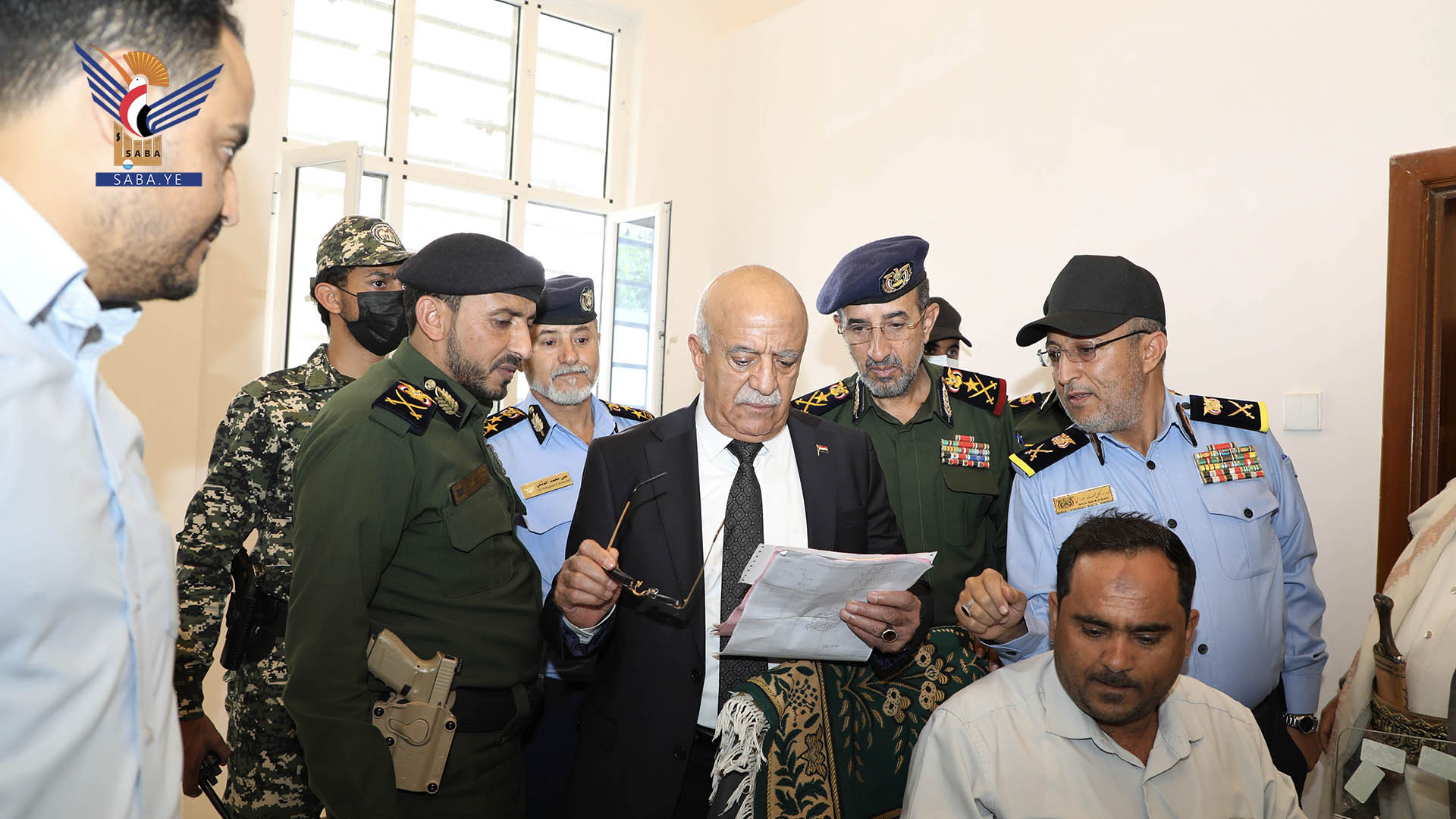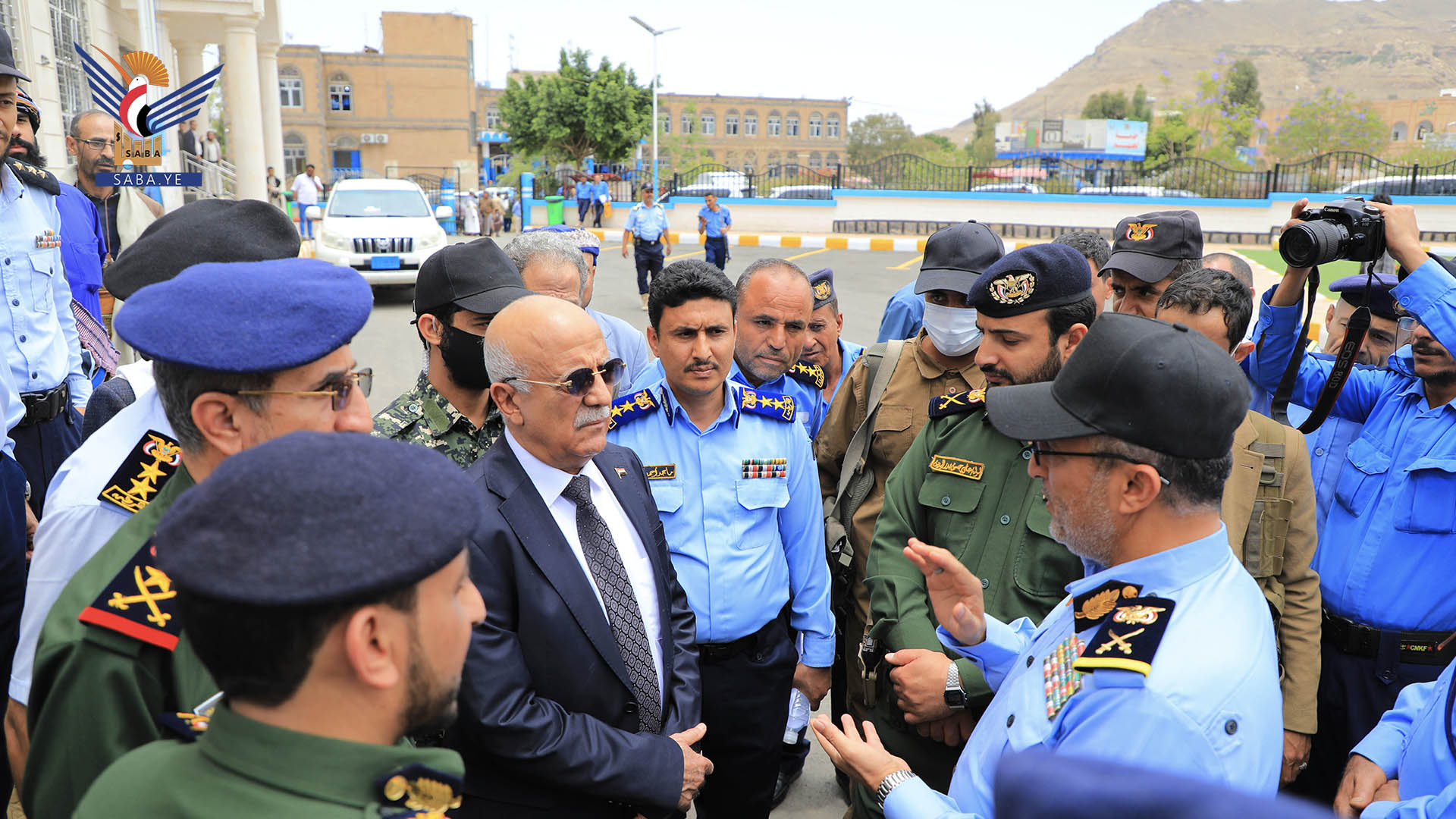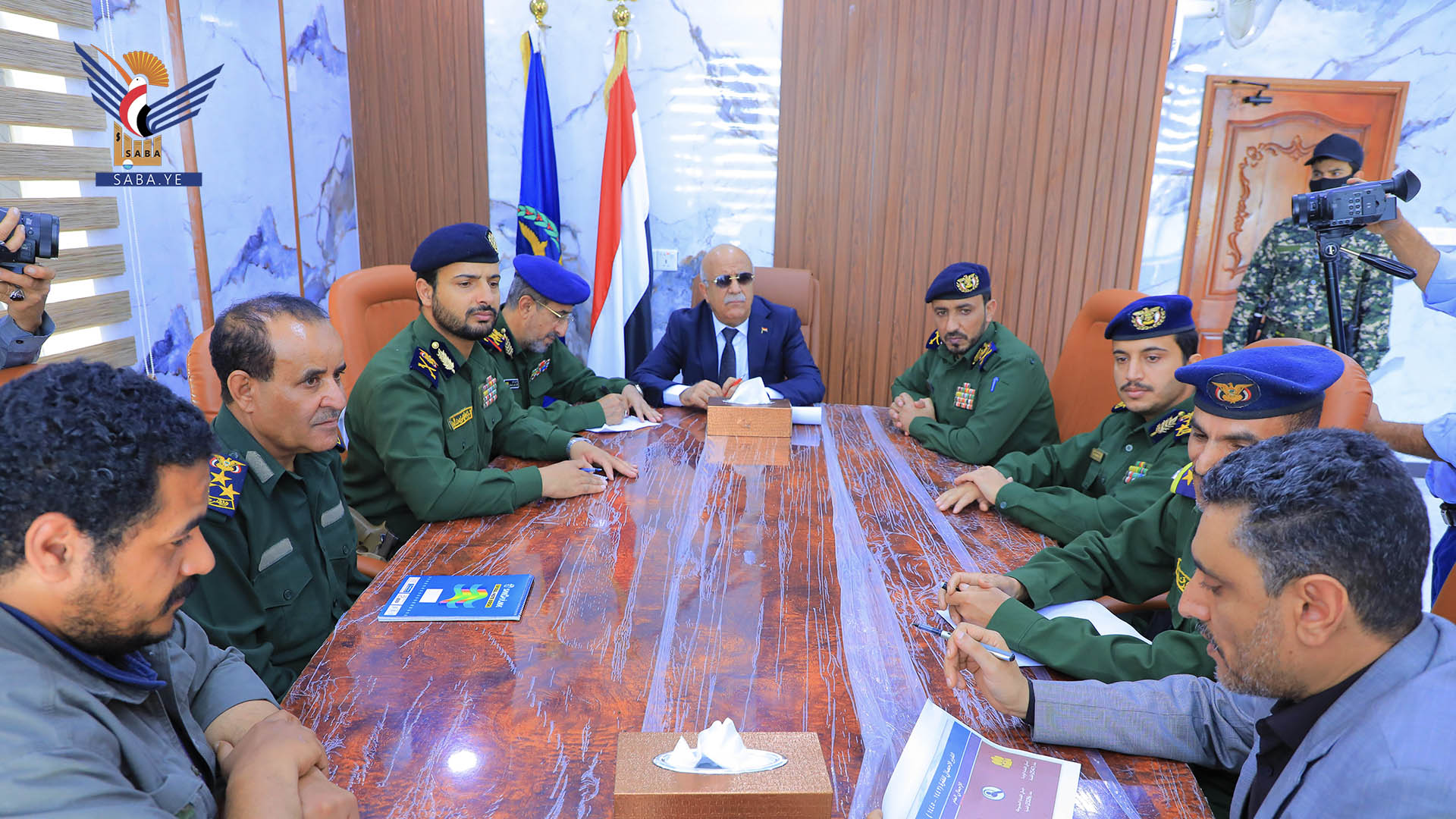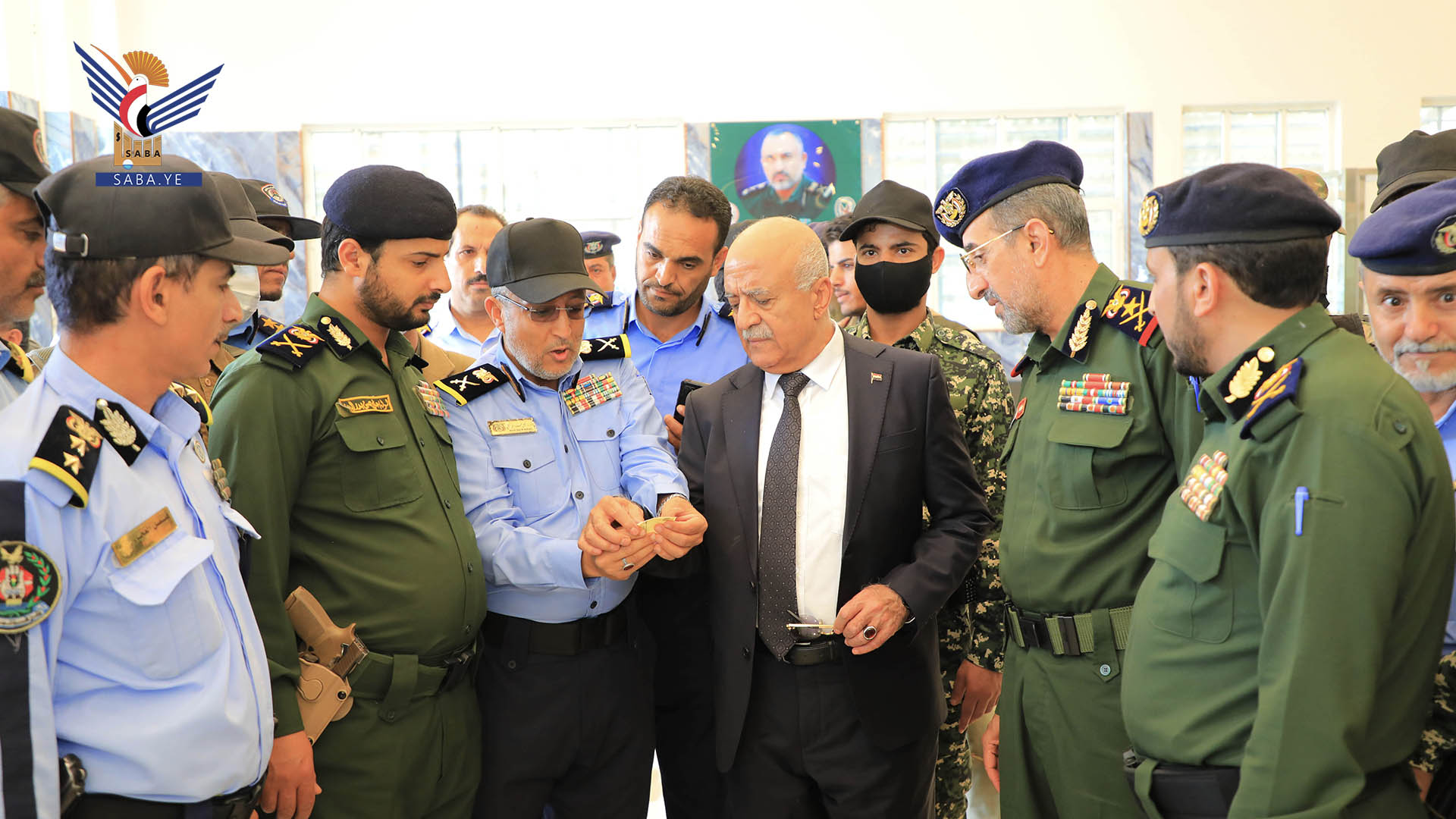
Sana'a – Saba:
Prime Minister Ahmed Ghaleb Al-Rahwi visited the General Department of Public Funds Investigations on Saturday to review its overall performance and its pivotal role in combating crimes related to public funds.
During the visit, the Prime Minister—accompanied by his deputy for defense and security affairs, Major General Jalal Al-Rowaishan, Deputy Minister of Interior Major General Abdulmajeed Al-Murtada, and Undersecretary for Security and Intelligence Affairs Major General Ali Hussein Al-Houthi—was briefed on the department’s efforts regarding the case of the adulterated gasoline shipment and the measures taken to apprehend those involved.
The delegation received a detailed explanation from Brigadier General Yousuf Al-Qasimi, Director of Public Funds Investigations, about the department’s activities, achievements, and ongoing modernization efforts, including technical advancements and qualitative improvements in recent times.
Brigadier General Al-Qasimi presented the volume and nature of cases investigated by the department between 1442-1445 AH (2021-2024 CE), reaffirming its commitment to combating public funds crimes in accordance with the law.
The Prime Minister praised the department’s accomplishments and urged all government agencies to cooperate constructively to serve the public interest, enhance anti-corruption efforts, and ensure legal accountability for offenders. He also wished the department success in its future duties.
Later, Prime Minister Al-Rahwi, along with Major General Al-Rowaishan, Major General Al-Murtada, and Major General Al-Houthi, visited the Unified Automated Issuance Center at the General Traffic Department to assess its operations and the quality of services provided to the public.
The Prime Minister listened to citizens’ feedback on the center’s services, which have significantly streamlined procedures for completing transactions.
Major General Dr. Bakeel Al-Barashi, Director-General of the Traffic Department, explained that the center—launched earlier this year—uses an electronic system to expedite transactions, reducing time and effort through mobile payment options and rapid processing. The center includes dedicated sections for women, people with disabilities, and international license issuance.
The center handles an average of 800 daily transactions and is equipped with surveillance systems to monitor employee performance, track transactions, and ensure fire safety with automated suppression systems.
The Prime Minister was also briefed on the Highway Traffic Police, whose second phase was launched during Ramadan. Major General Al-Barashi noted that the force provides free rescue, ambulance, and humanitarian services on major highways.
Eleven centers have been established so far, covering key routes connecting Sana’a with Hodeida, Amran, Sa'ada, Dhamar, Ibb, and Taiz. These centers have delivered over 48,000 services, including vehicle breakdown assistance and accident response.
Each center is equipped with an ambulance, a tow truck, a mobile repair workshop, patrol vehicles, motorcycles, and a mini operations room to receive reports.
The Prime Minister commended the Traffic Police’s efforts to improve services and simplify procedures for citizens. He emphasized that the Automated Issuance Center and Highway Traffic Police represent significant steps toward the government’s vision of enhancing public services and easing bureaucratic hurdles.
Al-Rahwi stressed that the Yemeni people, who have demonstrated resilience against the Saudi-Emirati-American-Zionist aggression and blockade for over a decade, deserve the utmost efforts from all service units to facilitate their needs.
Prime Minister Ahmed Ghaleb Al-Rahwi visited the General Department of Public Funds Investigations on Saturday to review its overall performance and its pivotal role in combating crimes related to public funds.
During the visit, the Prime Minister—accompanied by his deputy for defense and security affairs, Major General Jalal Al-Rowaishan, Deputy Minister of Interior Major General Abdulmajeed Al-Murtada, and Undersecretary for Security and Intelligence Affairs Major General Ali Hussein Al-Houthi—was briefed on the department’s efforts regarding the case of the adulterated gasoline shipment and the measures taken to apprehend those involved.
The delegation received a detailed explanation from Brigadier General Yousuf Al-Qasimi, Director of Public Funds Investigations, about the department’s activities, achievements, and ongoing modernization efforts, including technical advancements and qualitative improvements in recent times.
Brigadier General Al-Qasimi presented the volume and nature of cases investigated by the department between 1442-1445 AH (2021-2024 CE), reaffirming its commitment to combating public funds crimes in accordance with the law.
The Prime Minister praised the department’s accomplishments and urged all government agencies to cooperate constructively to serve the public interest, enhance anti-corruption efforts, and ensure legal accountability for offenders. He also wished the department success in its future duties.
Later, Prime Minister Al-Rahwi, along with Major General Al-Rowaishan, Major General Al-Murtada, and Major General Al-Houthi, visited the Unified Automated Issuance Center at the General Traffic Department to assess its operations and the quality of services provided to the public.
The Prime Minister listened to citizens’ feedback on the center’s services, which have significantly streamlined procedures for completing transactions.
Major General Dr. Bakeel Al-Barashi, Director-General of the Traffic Department, explained that the center—launched earlier this year—uses an electronic system to expedite transactions, reducing time and effort through mobile payment options and rapid processing. The center includes dedicated sections for women, people with disabilities, and international license issuance.
The center handles an average of 800 daily transactions and is equipped with surveillance systems to monitor employee performance, track transactions, and ensure fire safety with automated suppression systems.
The Prime Minister was also briefed on the Highway Traffic Police, whose second phase was launched during Ramadan. Major General Al-Barashi noted that the force provides free rescue, ambulance, and humanitarian services on major highways.
Eleven centers have been established so far, covering key routes connecting Sana’a with Hodeida, Amran, Sa'ada, Dhamar, Ibb, and Taiz. These centers have delivered over 48,000 services, including vehicle breakdown assistance and accident response.
Each center is equipped with an ambulance, a tow truck, a mobile repair workshop, patrol vehicles, motorcycles, and a mini operations room to receive reports.
The Prime Minister commended the Traffic Police’s efforts to improve services and simplify procedures for citizens. He emphasized that the Automated Issuance Center and Highway Traffic Police represent significant steps toward the government’s vision of enhancing public services and easing bureaucratic hurdles.
Al-Rahwi stressed that the Yemeni people, who have demonstrated resilience against the Saudi-Emirati-American-Zionist aggression and blockade for over a decade, deserve the utmost efforts from all service units to facilitate their needs.
